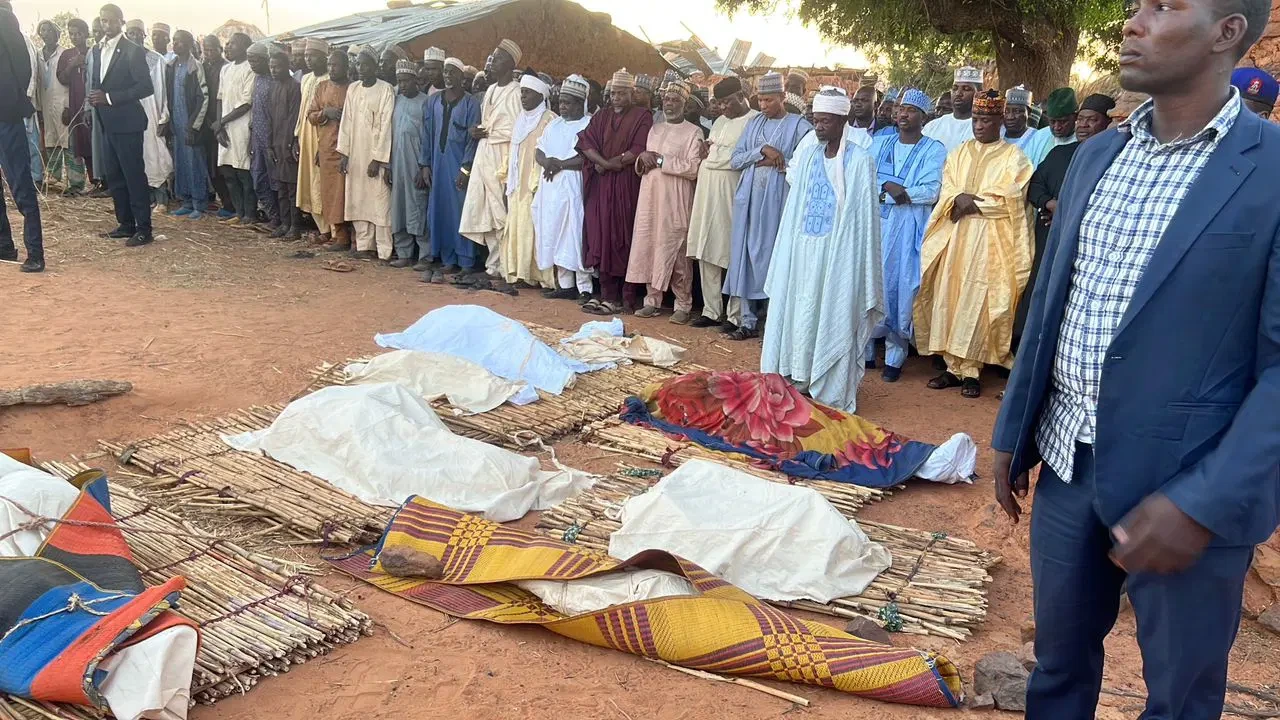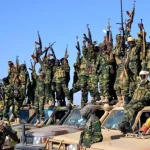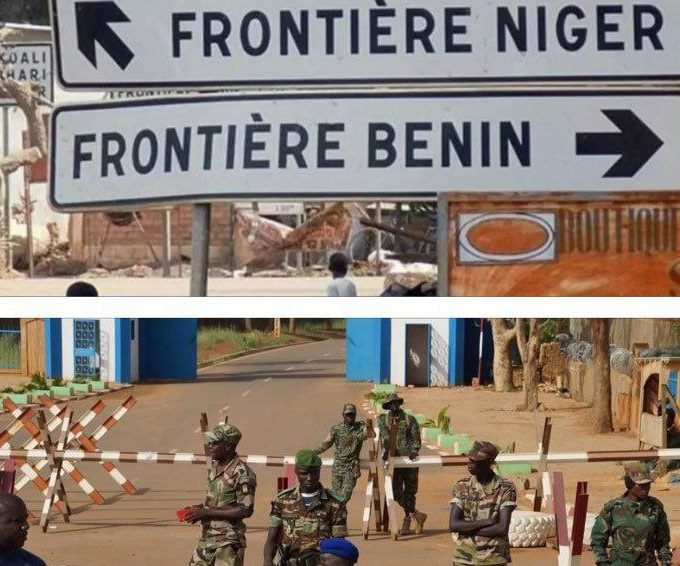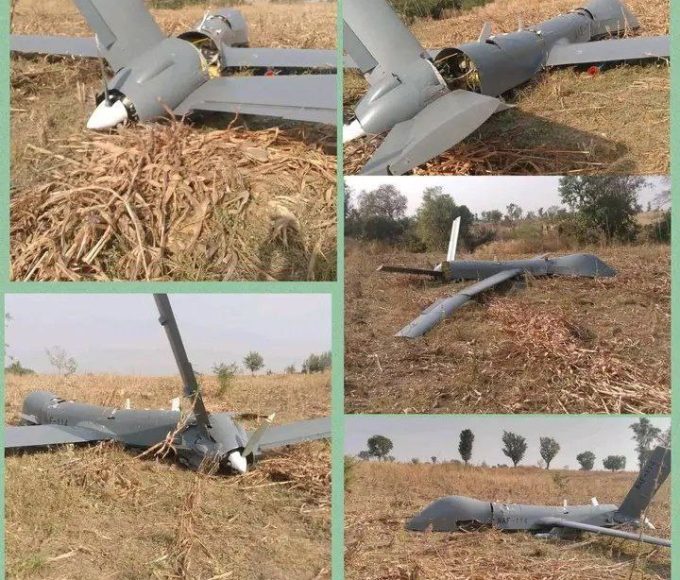
Nigerian Military, A Key U.S. Ally, ‘Mistakenly’ Killed Over 1,500 Civilians In The Last Decade

From 2014 to 2024, West Africa Weekly estimates that the Nigerian military has “mistakenly” killed at least 1,550 civilians.
The latest incident occurred on December 25 2024, when a Nigerian military aircraft bombed the villages of Gidan Sama and Rintuwa in Silame LGA, Sokoto State, northwest Nigeria, killing at least 10 civilians and injuring many others.
Following the attack, Reuters quoted Sokoto State Governor Ahmed Aliyu, saying, “The (Nigerian) military fighter jets were on their mission to eliminate criminal armed groups terrorising the state and mistakenly bombed innocent people of this community.”
Similarly, Premium Times quoted Abubakar Daftaran, Chairman of Silame LGA, stating, “The villagers were sitting peacefully when the bombs started dropping on the communities,” adding, “They (murdered civilians) were innocent and peace-loving people who had no criminal record.”
The incident is the latest in a series of errant attacks on non-combatant civilians by the Nigerian government, one of the United States’s closest allies in Africa and the recipient of billions of dollars in U.S. weaponry, including warplanes and bombs.
Civilians Previously Caught in Nigerian Military Lethal’ Misfires’
Over the last decade (2014–2024), the Nigerian military, operating under the guise of a democratic government, has carried out numerous airstrikes, resulting in the extrajudicial killing of civilians.
These attacks reveal a disturbing pattern of recklessness and a lack of accountability, as innocent people are repeatedly targeted in what is euphemistically called “mistakes” during operations against militants and “bandits”.
The first widely reported “mistake” occurred on March 16, 2014, when a Nigerian military officer dropped bombs intended for Boko Haram militants on the civilian population of Kaymla village in Borno State.
The attack killed at least 10 people, left many others injured, and caused additional unreported casualties. This tragic event set the precedent for a decade of repeated, deadly errors, with the military consistently denying responsibility or providing justice for the victims.
Between December 12 and 14, 2015, the Nigerian Army killed at least 1000 civilians in Zaria, Kaduna State, with 347 bodies secretly buried by the Army in a mass grave, according to a Judicial Commission of Inquiry.
The military claimed it was responding to an assassination attempt on the former Chief of Army Staff, Tukur Buratai, by members of the Islamic Movement in Nigeria (IMN), an allegation refuted by several human rights organisations who argued that the massacre occurred without any provocation and that all the protestors were unarmed.
Still, in December 2015, the Nigerian Army killed 11 individuals, including two police officers and nine activists, during Pro-Biafra protests in Onitsha.
This was followed by another incident on February 6, 2016, where security forces allegedly killed six members of the Indigenous People of Biafra (IPOB). While not classified as an “accidental discharge,” this incident is part of the broader pattern of military killings targeting civilian populations.
On January 17, 2017, the Nigerian Air Force bombed an internally displaced persons (IDP) camp in Rann, Borno State, killing at least 115 civilians, including six Red Cross aid workers. Amnesty International reported more than 100 injuries.
On February 28, 2018, another airstrike killed 20 civilians in the Daglun community, Borno State. A year later, on February 23, 2019, the military killed six civilians in Abonnema, Rivers State, during the 2019 general elections. Col. Sagir Musa, the military spokesperson at the time, claimed the victims were hoodlums attacking soldiers.
On April 11, 2019, 11 civilians were killed in Ajia, Zamfara State, when the Nigerian Air Force bombed the area, mistaking them for terrorists. Additional airstrikes on April 25 and July 2, 2019, killed 13 civilians in Gajigana and Mainok villages, Borno State.
The night of October 20, 2020, saw the military opening fire on unarmed protesters at the Lekki toll gate in Lagos. Amnesty International documented at least 12 deaths, contradicting state and federal officials who minimised the toll to two deaths. Despite denials, a Lagos State inquiry panel testimony confirmed military involvement, with soldiers deployed on Governor Babajide Sanwoolu’s orders.
On September 16, 2021, nine farmers were killed by an airstrike in Buwari village, Yobe State. Ten days later, another strike killed 20 fishermen in Kwatar Daban Mascara village, Borno State.
On April 20, 2022, six civilians died in Kuragba community, Niger State, followed by two more casualties on July 6, 2022, in Kunkunni village, Katsina State.
On December 17, 2022, in another “accidental discharge” that once again targeted a civilian population mistaken for terrorists, an airstrike by the Nigerian military killed at least 60 civilians in Mutunji, a community within Dausadau Emirate in Zamfara State’s Maru Local Government Area.
In January 2023, airstrikes in Niger and Nasarawa states killed 18 and 40 civilians, respectively, totaling 58 deaths. On March 3, three civilians were killed in Sabon Gida, Kaduna State. In August, a female civilian died during an airstrike in Kwaki village, Niger State.
On December 3, 2023, one of the deadliest strikes occurred in Tudun-Biri, Kaduna State, killing over 120 civilians with no accountability. Amnesty International condemned the attack, highlighting the military’s baseless assumption that the victims were terrorists.
The President Bola Tinubu administration must promptly set up an independent inquiry into Silame LG villages’ air strikes and, where these investigations indicate criminal responsibility, ensure that those suspected to be responsible are brought to justice in fair trials. Victims and their families must be provided with access to justice and effective remedies,” Legit.ng, in a report, quoted Isa Sanusi, country director of Amnesty International.
Despite condemnations and calls for accountability, the tragedies persisted in 2024. On April 2024, an airstrike in Zamfara State killed 33 civilians preparing for Eid prayers.
On September 27, an attack in Kaduna State claimed 24 lives. Confirming the tragic hit, the Nigerian Air Force stated that the strike followed “credible intelligence and confirmatory surveillance but promised an investigation to ascertain its not-so-factual position. The latest incident is the December 25 strike in Sokoto communities, killing ten civilians.
Meanwhile, it will be recalled that following the April 10 strike, The Intercept reported that U.S. President Joe Biden told the Nigerian government to kill fewer civilians.
U.S. Weapons and Unaccounted Civilian Deaths
Since 2014, Nigeria has been the largest arms importer in sub-Saharan Africa, with the U.S. as its leading supplier. In 2021, the Biden administration supplied Nigeria with 12 Super Tucano warplanes for a $593 million package, including bombs and rockets.
In a 2017 report by The Cable, Nigeria’s former defence chief, Gen. Lucky Irabor, admitted ordering a bombing in Rann based on intelligence received. While the intelligence source was undisclosed, a senior military source suggested it originated from a Western nation.
Despite the numerous previous “accidental discharges” highlighted above, it will be recalled that following the December 3, 2023, drone strike that killed over 120 civilians in Kaduna, the Assistant Secretary of the U.S for African Affairs Molly Phee was quoted by The Intercept during a call on January 18 as saying:
I wouldn’t call it an attack…the Nigerians have admitted it was an operational error that tragically killed people in Kaduna State.”
This comes as the Nigerian government led by President Bola Tinubu recently urged the International Criminal Court, ICC, to stop its “prolonged” investigation into alleged war crimes, including attacks against the civilian population and accusations against Nigerian security forces for murder, rape, torture, enforced disappearances, and the forcible displacement of civilians, in an attempt to evade accountability for the crimes committed against its population despite established oath to protect and serve the public.
Read More:
- ICYMI: Tinubu’s Government To Include Drug Peddling, Prostitution In GDP Calculation
- ICYMI: Chad Foils Armed Attack On Presidential Palace, Says Situation Under Control
About The Author
Mayowa Durosinmi
author
M. Durosinmi is a West Africa Weekly investigative reporter covering Politics, Human Rights, Health, and Security in West Africa and the Sahel Region
Related Articles
Côte d’Ivoire Thrash Burkina Faso to Seal AFCON 2025 Quarter-Final Spot
Côte d’Ivoire confirmed their place in the quarter-finals of the 2025 Africa...
ByWest Africa WeeklyJanuary 7, 2026Benin and Niger Relations Deteriorate Further as Diplomatic Expulsions Escalate
Diplomatic relations between Benin and Niger have sharply deteriorated following a series...
ByWest Africa WeeklyJanuary 5, 2026Nigerian Air Force Confirms Crash of CH-4 Combat Drone in Niger State
The Nigerian Air Force has confirmed that one of its CH-4 combat...
ByWest Africa WeeklyJanuary 5, 2026Mali Survive Shootout Against Tunisia, Set Up Senegal Showdown
Mali advanced to the quarter-finals of the Africa Cup of Nations after...
ByWest Africa WeeklyJanuary 5, 2026












Leave a comment